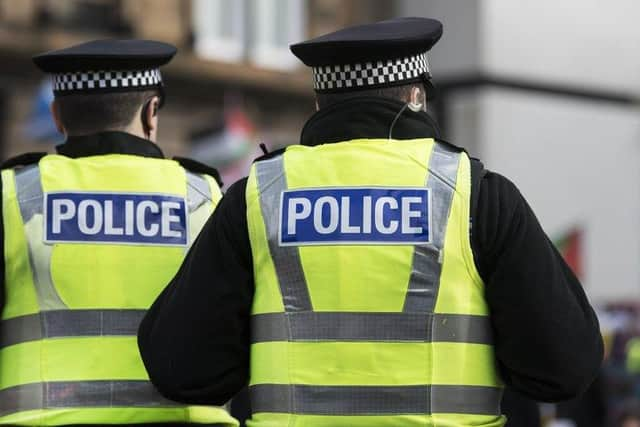Covid Scotland: Areas hit hardest by virus had less input into police powers watchdog, report finds
and live on Freeview channel 276
The paper examines the additional human rights-focused scrutiny offered by the Independent Advisory Group (IAG) during the outbreak, giving largely positive feedback on the outcome of the project.
However, it found parts of the community across Scotland may not have received enough representation.
Advertisement
Hide AdAdvertisement
Hide AdIt said: “Some sections of the community hit especially hard by the pandemic were arguably under‐represented.
“There was, for example, no representation from an organisation with a specific remit for deprivation and economic inequality, and limited input from Scotland’s black and minority ethnic communities.”
The report proposes a number of questions which can be reflected upon for future projects of this kind.
These include “what does it mean to represent diverse interests” and how are decisions made about which organisations are represented in the group?


Advertisement
Hide AdAdvertisement
Hide AdSimon Anderson, co-author of the report, said: “Our review suggests that the IAG has been an innovative, important and in many ways ground-breaking initiative. It was able to draw on an impressive array of inputs – both from the membership itself and further afield – and allowed a different type of conversation to take place.
“While the model of the IAG is clearly not the answer to all of the complex challenges facing policing, it does offer insights about how to achieve open, effective and rights-based scrutiny of policing, both in the specific and unique circumstances of the pandemic and, potentially, more generally.
“Our report sets out a range of lessons which should inform any similar exercises in the future.”
The IAG was established in April 2020 by Chief Constable Iain Livingstone with the full backing of the Scottish Police Authority (SPA).
Advertisement
Hide AdAdvertisement
Hide AdIts role was to complement and enhance existing police scrutiny arrangements, focusing on policing’s use of emergency coronavirus powers.
John Scott QC was commissioned to chair the IAG, which consisted of 12-15 members drawn from human rights bodies, third sector agencies, academia and charities representing marginalised or disadvantaged groups.
Since May 2020, the IAG has reported regularly to public sessions of the SPA.
The review of its work found the group offered “added confidence” that decisions taken early in the pandemic about policing in Scotland were consistent with principles associated with policing by consent.
Advertisement
Hide AdAdvertisement
Hide AdIt was found to have provided a “valuable sounding board” to help shape the approach to policing particular sections of the community.
This includes people with hidden disabilities or young people.
The IAG was also found to have complemented, supported and informed the SPA’s scrutiny and assessment of policing during the period and helped to maintain the confidence of civil society groups and the wider public.
Mr Scott said: “This IAG, the first of its kind in the UK and at the forefront of bespoke, human rights-focused scrutiny in international terms, is a sign of a mature police service and statutory oversight body.
Advertisement
Hide AdAdvertisement
Hide Ad“This research recognises that the IAG’s work provided additional assurance and a number of benefits to policing over a particularly challenging period.”
The review was commissioned jointly by the SPA and Police Scotland.
It will be considered at a public session of the SPA on Wednesday.
